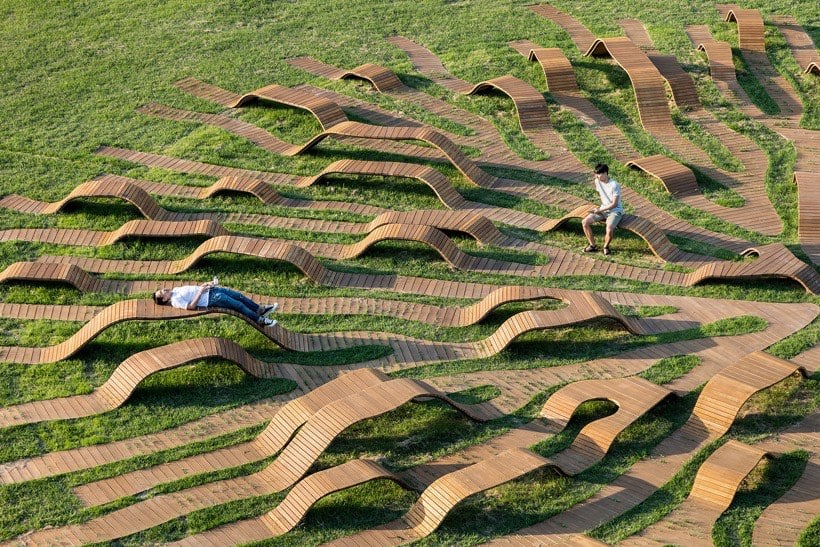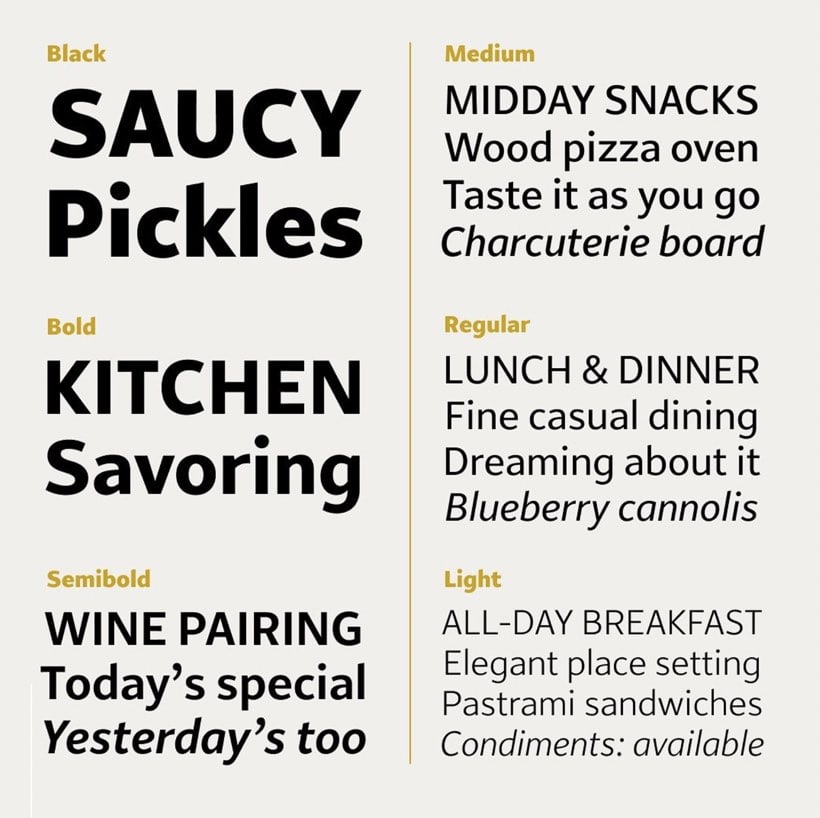 |
| |
|
|
|
I find it bewildering and demoralising to observe Australia’s obsession with property as an investment scheme. In an age of growing inequality, home ownership in particular is increasingly benefitting the already well-off.
Admittedly, I’m writing this about a year after purchasing an apartment – somewhat reluctantly, though. I’d be happy to rent for the rest of my life, if only I didn’t live in a country that favours owners over renters in every possible way.
Given that property/land ownership is the great divider of our society, it’s worth asking: What are the ethics behind owning land? And what if we abandoned land ownership altogether? This is what Jehan Azad and Uri Bram do in their essay ‘Land ownership makes no sense’. (Possible paywall, free archived view here.)
“The right to live is generally considered the first of the natural rights. But living requires physical space – a volume of at least several dozen liters for your body to occupy. It’s pointless to declare that someone has a right to something if they can’t acquire its basic prerequisites. For example, as a society we think everyone has a right to a fair trial; since you can’t meaningfully have a fair trial without a lawyer, if someone can’t afford a lawyer, we provide one. Similarly, on planet Earth at least, occupying space necessarily implies occupying land.”
Ironically, the story of land ownership in Australia is also a story of dispossession – of violently taking land from Indigenous peoples who stewarded the land for millennia. But regardless of where you live, “everyone who owns land today is the descendent, inheritor, or counter party of someone who took that land by force. … The fact that we all need land to live, and that there’s no more land available, is the crux of the immorality in profiting from it. You’re renting someone’s rights back to them.”
US founding father Thomas Paine considered all land ‘the common property of the human race’. (Today, I would extend ownership to all living things.) If we agree that it belongs to all, then asking someone to pay for their right to exist on it becomes an immoral act:
“Everyone today is born with a kind of existential debt. From the moment you emerge, you’re in a space that belongs to someone else, and from then on, money is spent each day to give you access to the space you require to exist. Land ownership, and the accompanying system of sales and rentals, merely allows some people to make money by gatekeeping a resource that no more belongs to one of us than any of us. Economists call this ‘rent seeking’, and most of us call it ‘immoral’.”
Azad and Bram argue that in a not-too-distant future, we may look at land ownership in the same way we now look, in horror, at slavery or the notion of wives as property of their husbands.
A society without land ownership sounds utopian, but Azad and Bram show that alternatives already exist: for example, publicly owned land that is leased to residents on a fixed term for, say, 99 years. There are also ways to tax land ownership in order to disincentivise ‘holding land’ for financial speculation.
It’s unlikely we’ll see radical changes any time soon. That said, land ownership – like other forms of ownership mentioned above – relies on its social licence. If housing inequality continues to worsen, we may just reach the critical mass necessary to bring about a new model. – Kai
|
| |
|
DD relies on word of mouth
If you’re enjoying DD, chances are your friends and colleagues will, too! Help me reach more readers by sharing the link to this issue with others:
densediscovery.com/issues/255
You receive this email because you subscribed to Dense Discovery, a weekly newsletter at the intersection of design, tech, sustainability, urbanism and more. Writing to you from Melbourne is Kai Brach. Do you have a product or service to promote in DD? Find out more about advertising in DD.
|
| |
Explore the World of Collage SPONSOR
|
|
Collé, an email publication exploring the world of contemporary collage, highlights an artist from around the globe in each edition, giving readers a window into their creative practice. Sign up today to receive their weekly editions.
Collage by Anthony Zinonos
|
|
| |
Apps & Sites
|
Offline maps for the outdoors
|
|
A free, privacy-focused offline maps app (iOS & Android) for travellers, hikers and cyclists based on crowd-sourced OpenStreetMap data. This means you get cycling routes, hiking trails, and walking paths; contour lines, elevation profiles, peaks, and slopes; turn-by-turn walking, cycling, and car navigation with voice guidance – all without an active internet connection.
|
|
Elegant screen recordings
|
|
Screen Studio is a powerful macOS tool for recording and editing beautiful screen recordings. It comes packed with useful features, like auto-zoom, customisable backgrounds, the option to also record from your webcam and more.
|
|
|
Mind Window is part of a scientific research project to develop a large international database of thoughts in daily life. The app pings you at random moments of the day with questions about your thoughts. Over time, this offers insights into patterns of thought and how they evolve. The app also provides feedback that helps you identify how your thinking may impact your well-being.
|
|
|
This mobile app (iOS & Android) gives you a down-to-the-minute rain forecast for your location using high-quality and beautiful-looking radar info and interactive maps.
|
|
| |
Favourite Books: Mike Engel
|
|

Five book recommendations by web developer and amateur photographer Mike Engel
|
|
by Amal El-Mohtar & Max Gladstone
A short story about two people, who are meant to fight each other, weaving through time and space, almost meeting but never quite at the same time. A short story about fate, war, and love.
by Martha Wells
If a robot, whose primary job is killing, secretly gains sentience, what does it do? Hint: a lot more than killing! Murderbot will make you laugh more than you expect and you’ll probably finish it in a day.
by M. R. Carey
Earth is angry, the trees (finally) fight back, humanity is splintered, and tech from a long-forgotten era of humanity allows some to reign superior over the rest. The Book of Koli puts a new spin on class struggle and the effects of man-made climate change.
by Adrian Tchaikovsky
Science fiction written by a Zoologist. Humans take a back seat to a group of aliens that are truly alien, unique, and absolutely not humanoid. There is, of course, conflict and space travel, but the real stars here are the other species we might find in space.
by James S.A. Corey
A rag-tag band of humans from three different factions of our solar system come together to fight corporate greed, inter-planetary superpowers, and body-altering, out-of-this-solar-system viruses. The science is top-notch, the characters are relatable, and the story ends up being an nine book epic I would happily re-read given the time.
(Did you know? Friends of DD can respond to and engage with guest contributors like Mike Engel in one click.)
|
|
| |
Books & Accessories
|
The power of introverts in a world that can’t stop talking
Author Susan Cain uses facts, statistics and a range of case studies to show how introverts can thrive, not in spite of their introversion, but because of it. Quiet spent eight years on the New York Times bestseller list and has been translated into over 40 languages. “Susan Cain argues that we dramatically undervalue introverts and shows how much we lose in doing so. She charts the rise of the Extrovert Ideal throughout the twentieth century and explores how deeply it has come to permeate our culture. Passionately argued, superbly researched, and filled with indelible stories of real people, Quiet has the power to permanently change how we see introverts and, equally important, how they see themselves.”
|
|
The human role in the future of work
Automation and AI loom large over the future of work. Author Jamie Merisotis provides a fresh, non-sensationalistic view on the changing role of human work and how we need to prepare ourselves and society to work alongside smart machines. “By shifting long-held ideas about how the workforce should function and expanding our concept of work, he argues that we can harness the population’s potential, encourage a deeper sense of community, and erase a centuries-long system of inequality. As the headlines blink red, now is the time to redesign education, training, and the workplace as a whole. Yes, many jobs will be lost to technology, but if we promote people’s deeper potential, engaging human work will always be available.”
|
|
| |
Overheard on Twitter
|
|
Thinking of a new email signature other than ‘best’...
You’ll never take me alive, Nate
|
| |
Food for Thought
|
|
A thought-provoking read that questions our current model of land/property ownership and proposes a few, already existing alternatives. “Our descendants will also have that all-too-common moral experience of horror when they read about the long history of believing that because land can be captured by violence, fenced off, and controlled, that it’s right to do so. To see how the future will view our current model of land ownership, we could look at how the present views feudalism. The feudal lord didn’t create the land himself, it had been deeded by some prevailing power, who got it from someone else, until reaching someone who took it by force.”
(Possible paywall – free archived view)
|
|
|
If there is a cautionary example of a city with car-dependency gone awry, it must the Los Angeles. This piece dives into the historical transformation of LA from a city with streetcar and train-based transportation to one in which cars reign supreme. “Towards the end of the 19th century, cities began to widely adopt the electric streetcar. Much faster than the horse-drawn streetcar or the omnibus, the electric streetcar allowed commuting distance to greatly increase, and ‘opened vast new areas to development’. By 1902, ‘there were more than 800 electric streetcar systems in the US running on 22,000 miles of track’, and by 1910 electric trains were the second largest consumer of electricity in the US.”
|
|
|
I’ve known of Dan Buettner’s work through his many talks, but this new four-piece Netflix show goes much deeper and is beautifully shot. Buettner’s ‘Blue Zones’ project identifies places in the world where people are uncommonly long-lived, asking: why do people in these zones live so much longer than the global average? Each episode covers one or two of these zones. The show highlights the many ways modern life has put us on unhealthy paths and what we can do to change directions. Truely inspiring, no matter what age you are today.
|
|
| |
Aesthetically Pleasing
|
|
Seoul-based Root Bench is a circle-shaped public furniture installation with a diameter of 30 metres, representing the dynamic shape of roots spreading throughout the park.
|
|
|
Malika Favre is a French artist based in Barcelona. Her bold, minimal style is a striking lesson in the use of positive/negative space and colour. Some of her prints are available in limited editions in her shop.
|
|
|
Designer/architect ‘Jun-Jun’ draws beautifully detailed traditional shop fronts from the 1930s Japan.
|
|
|
Peasy is a friendly, modern sans serif typeface, designed for extended reading and medium-sized display copy. A neutral but refreshing, soft personality that shines where readability is key.
|
|
| |
Notable Numbers
|
|
A new paint, partially made from discarded oyster shells is able to reflect 90 per cent of the sun’s rays away from a building. This results in an average temperature reduction of 6–7 degrees C.
|
|
|
US merchants paid an eye-watering ~$93 billion in Visa and Mastercard credit card fees last year – an inescapable part of doing business in 2023, that has made the two companies into absolute giants.
|
|
|
The cyclist fatality rate in the Netherlands per 100 million kilometers bicycled is 0.9 versus the US’ 6. It’s estimated more than 22,000 fewer Americans would have died on the roads if the US had undergone similar transformations in road safety nearly 50 years ago.
|
|
| |
Classifieds
|
|
Tired of algorithms playing ping pong with your attention? Just Looking is a thoughtful newsletter about mindfulness, curiosity and taking back control of what you’re noticing.
Creators of All Trades newsletter: discover trending apps and must-reads across social, marketing, productivity, design, tech, and startups. Subscribe now and elevate your game!
I’m a life coach who is also an ex-McKinsey consultant. I mix the practical + the deep, the intellectually rigorous with the emotional + somatic. Check out my free newsletter here.
Smart Layouts by designstripe is an AI-powered social designer. Get a daily feed of personalised, customisable designs for social media – always on topic, always on brand.
|
|
Classifieds are paid ads that support DD and are seen by our 43,000 subscribers each week.
Book yours →
|
|
| |
The Week in a GIF
|
|
Reply with your favourite GIF and it might get featured here in a future issue.
|
|
| |
| |
|















